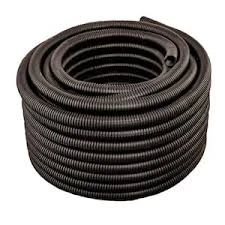Durable Metal Cable Carrier Chains for Efficient Cable Management Solutions
The Importance of Metal Cable Carrier Chains in Modern Industry
In today's fast-paced industrial landscape, the efficient management of cables and hoses is critical to maintaining optimal operational performance and workplace safety. Among the various solutions available for cable management, metal cable carrier chains have emerged as a preferred choice for many businesses. These chains, designed for both flexibility and durability, play an essential role in organizing and protecting cables, thereby enhancing productivity and reducing downtime.
Understanding Metal Cable Carrier Chains
Metal cable carrier chains, also known as cable drag chains, are mechanical assemblies often made from robust materials such as steel or aluminum. They feature a series of interlinked segments that create a track for cables and hoses to move along without tangling or undergoing unnecessary stress. These chains are used in various applications, from CNC machines and robotics to conveyor belts and automated manufacturing systems.
The primary function of metal cable carrier chains is to provide a safe and efficient path for cables and hoses that experience movement, such as those in robotic arms or machinery that requires rotational or linear motion. By effectively holding the cables in place, metal carrier chains prevent wear and tear, which can lead to expensive downtime or equipment failure.
Advantages of Using Metal Cable Carrier Chains
1. Durability One of the standout features of metal cable carrier chains is their strength. Unlike plastic or other lightweight alternatives, metal chains can withstand harsh environments, high temperatures, and heavy loads. This makes them particularly suitable for industries where extreme conditions are a common occurrence, such as manufacturing, oil and gas, and construction.
2. Protection Metal cable carrier chains provide excellent protection for cables and hoses. They shield vulnerable components from accidental damage, environmental factors, and mechanical wear. This safeguard not only extends the life of the cables but also ensures that the machinery operates efficiently without interruptions due to cable failure.
metal cable carrier chain

3. Flexibility Despite their robust nature, metal cable carrier chains can be designed to accommodate various movements and angles. They can handle not just linear movements but also torsional and bending motion, which is crucial for complex machinery and robotics. This versatility transforms how industries approach cable management, enabling more innovative designs and setups.
4. Ease of Maintenance Maintenance is a critical aspect of any industrial operation. Metal cable carrier chains simplify this process by allowing for quick inspection and easy access to cables. If a cable needs replacement or repair, it can be done swiftly without dismantling large sections of equipment. This results in minimal downtime and reduced operational costs.
5. Customization Metal cable carrier chains can be customized to fit specific machinery and application requirements. Industries can choose from various sizes, shapes, and configurations to create a system that perfectly fits their needs. This level of customization ensures optimal function, minimizing the risks associated with subpar cable management.
6. Cost-Effectiveness While the initial investment in metal cable carrier chains might be higher than other alternatives, their durability and low maintenance needs translate to cost savings in the long run. Businesses experience fewer disruptions, which directly impacts productivity and profitability.
The Future of Cable Management
As technology continues to evolve, the demand for efficient cable management solutions will only increase. Metal cable carrier chains are likely to see further innovations, including the incorporation of smart technologies that monitor the condition of cables in real-time. This proactive approach could revolutionize maintenance strategies, making industries even more resilient and prepared for unforeseen challenges.
In conclusion, metal cable carrier chains represent a vital component in modern industrial operations. Their unique advantages—durability, protection, flexibility, ease of maintenance, customization, and cost-effectiveness—make them an indispensable tool for effectively managing cables and hoses in various settings. As industries continue to embrace automation and advanced machinery, the role of metal cable carrier chains will undoubtedly expand, paving the way for more efficient and safer industrial environments.








